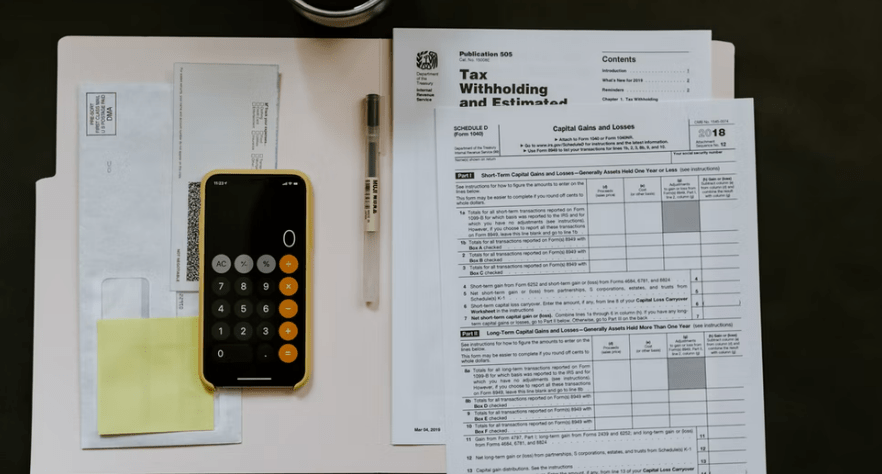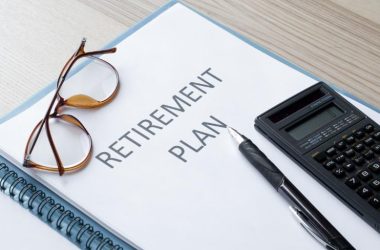Understanding how Income Tax works might be perplexing, especially if you’re starting in the workforce. Understanding how Income Tax and Personal Allowance function will enable you to determine whether you are getting paid the correct amount and assist you in budgeting. If you’re having trouble wrapping your brain around personal tax allowance, we will explain all you need to know in simple English.
What is the Personal Tax Allowance and where can I find It?

To HMRC’s dismay, most UK taxpayers are entitled to a UK personal allowance on their taxable income. They stated that most individuals might receive a certain amount of money before being required to pay income tax.
It is referred to as a personal tax allowance. In layman’s terms, everyone, even students, has a Personal Allowance. It is the amount of money you can earn in a tax year before paying income tax.
Personal Allowance 2021/22 is £12,570.
If you claim Marriage Allowance or Blind Person’s Allowance, your allowance may be higher. It may be less if you are a high income or owing tax from a prior tax year.
What are the rates of taxation?

Income tax is a tax on your job earnings. It ranges from 0% to 45%, depending on your payments. Dividends and savings interest are also taxable. When you die, your estate must pay inheritance tax. It is a 40 percent flat rate.
How do I apply for my allowance?
It is straightforward to get your allowance. You will immediately contact your tax-free personal budget if you complete a self-assessment tax credit return.
Top 6 ways to save money on taxes in the UK
1. Learn how to pay less tax on your earnings
Everyone gets a tax-free allowance of £12,570 as of April 2021. It is referred to as your allowance. It implies that the first £12,570 of income is exempt from tax. Salary, bonuses, rental income, and pension income are all income examples.
Check if there are any methods to enhance your income if you aren’t currently utilizing your allowance. For example, if you are married and jointly own a rental property, may the rental property be kept in your name to use your tax-free allowance fully?
2. How to avoid the 60-percentage-point tax trap
Your tax-free personal allowance will be lower if you earn more than £100,000 per year. You will lose £1 of your budget for every £2 you earn over £100,000. It is known as the ‘60% tax trap’ since you essentially pay tax at 60% on income between £100,000 and £125,000.
For example, if you earn £100,000 and get a £12,000 bonus, the extra will tax at 60%. You will also have to pay 2% national insurance. You may save tax paye and national insurance by putting your premium into your pension.
3. Tips for lowering your capital gains tax burden
If you earn from the sale of an investment or property, you may be required to pay capital gains tax. You may generate tax-free investment/property profits of up to £12,300 each year. It is referred to as your capital gains tax exemption.
Profits beyond £12,300, on the other hand, are taxed at a rate ranging from 10% to 20%, depending on your income. There is a special rate of taxation on properties ranging from 18% to 28%.
4. How to reduce capital gains taxes on Restricted Stock Units
Restricted Stock Units are units of stock that workers obtain from the firm for which they work (RSUs). If you keep these shares, you may have to pay capital gains tax.
You may reduce your capital gains tax on RSUs in the following way
Immediate sale – You may sell the shares right away without the further tax burden. If you still wish to hold the shares, you may put them in stock and share individual saving accounts (ISA) and avoid paying capital gains tax in the future.
5. How to Lower Your Company’s Tax Bill
If you own a company and generate a profit, you must pay corporation tax. Any earnings you make will be taxed at a rate of 19%. On the other hand, employer pension payments are recognized as a deductible cost and may lower your company tax.
Employer pension payments are likewise exempt from income and profit taxes. When opposed to paying yourself a salary and pay, a £10,000 pension contribution may save you up to £4,530 in tax.
6. How to Lower Your Income Tax Bill
Any earnings over £12,570 will be subject to income tax. Your payments will determine the amount you pay,
There are many strategies to minimize your income and hence pay less tax. The most typical method is contributing to a pension, which reduces your tax burden by the highest tax rate.
So, if you regularly make £60,000 and contribute £10,000 to a pension, you will save £4,000 on your tax burden.
Is there a simple way to file?
Various taxation firms in the UK can help you file a tax return. Forget about lengthy form filling and unwanted phone calls from HMRC. Input the income and spending data, and they will prepare your tax return and send it to HMRC online.
Conclusion
A tax reduction that benefits high-income families more than low-income households will not assist in reducing inequality. It may seem strange that this has to be said, but based on recent media stories and think tank papers, not everyone has comprehended this fundamental reality.
Every citizen of the United Kingdom receives a personal allowance each tax year. It works as follows: The personal allowance is the amount you may earn before paying taxes.
For 2021/22, it is £12,570. So, if you make £20,000 in 2021/22, you will pay income tax on £7,430 of that amount. When your taxable income surpasses £100,000 in a tax year, the personal allowance is lowered (by £1 for every £2 your income exceeds £100,000) so that if your taxable income reaches £125,140 (in 2021/22), you will no longer get a personal tax allowance.









